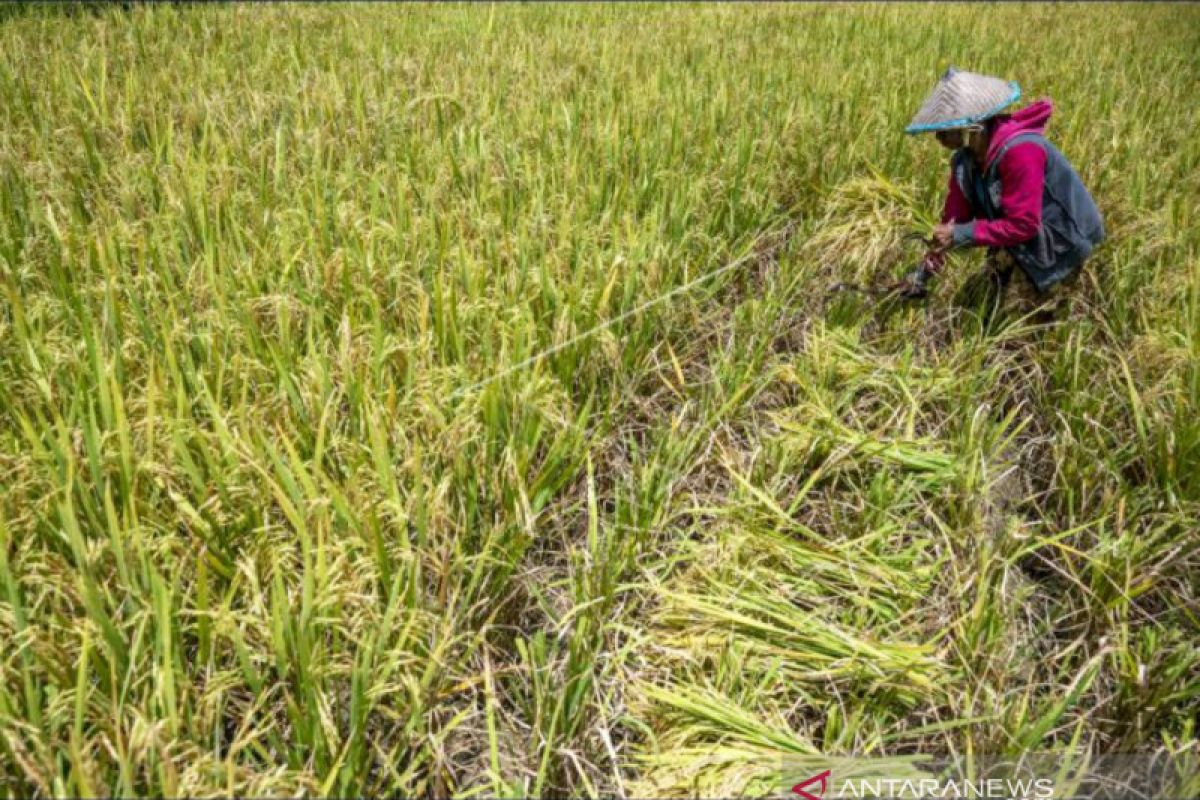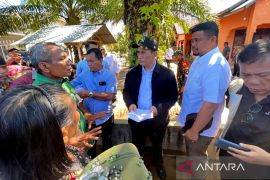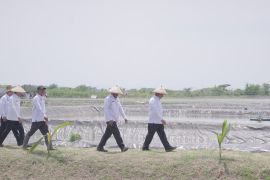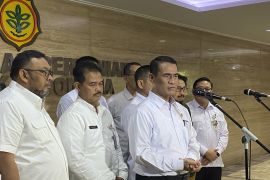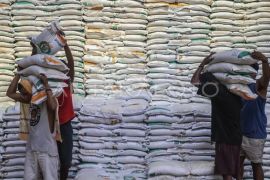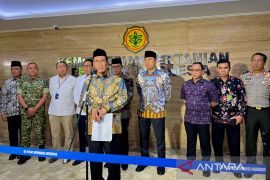The agricultural sector remains the mainstay of economic growth amid the crisis and pandemic.Jakarta (ANTARA) - The agricultural sector is still contributing significantly to the national gross domestic product (GDP) and thereby boosting economic growth amid a global energy crisis.
Center of Reform on Economics (Core) Indonesia economist Eliza Mardian made the remarks in a written statement released here on Friday.
"The agricultural sector remains the mainstay of economic growth amid the crisis and pandemic," he observed.
Related news: Achieving herd immunity goal of FMD handling: task force
According to Statistics Indonesia (BPS), agriculture was the third-largest sector in terms of its GDP contribution in the third quarter of 2022, which stood at 12.91 percent. In addition, the sector absorbed the largest number of workers at more than 27 percent, Mardian said.
High and fluctuating food prices may have an impact on the movement of inflation and GDP in the agricultural sector. However, if food prices only increase at the farmer level, the food price hike will push up the agricultural sector's contribution to economic growth, he said.
"If food prices increase at the farmer level, this will increase the GDP," he said.
Moreover, the Agriculture Ministry has issued a regulation on the procedure for setting the allocation and highest retail price of subsidized fertilizers for the agricultural sector, he informed.
Related news: Indonesia, WOAH, FAO collaborate to curb antimicrobial resistance
The regulation has revised the policy on the types of subsidized fertilizers, which have changed from urea, SP36, ZA, and NPK to urea and NPK.
State-owned fertilizer firm PT Pupuk Indonesia (Persero) will serve as a subsidized fertilizer producer and distributor, in accordance with the recommendations made by the working committee of Commission IV of the House of Representatives (DPR).
As of October 31, 2022, PT Pupuk Indonesia has distributed 77.3 percent of the quota of subsidized fertilizers allocated to the company. Meanwhile, the absorption of urea has reached 73.8 percent and NPK 794.4 percent.
Related news: Indonesia, FAO reaffirm stronger cooperation for next four years
Related news: Research, innovation promotes sustainable agriculture: BRIN
Translator: Aditya Ramadhan, Suharto
Editor: Fardah Assegaf
Copyright © ANTARA 2022
